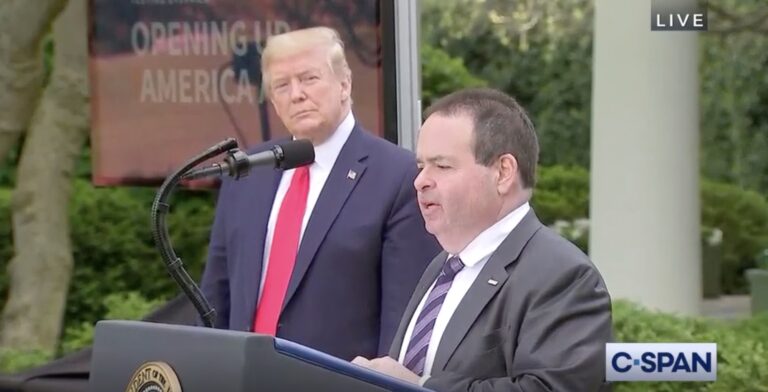Suicide: Gun Control Advocates’ More Pressing Problem
CW: gun violence, suicide
America has a gun problem that no one is talking about. It’s more deadly than mass shootings and more prevalent than accidental shootings.
It’s gun suicide.
Although preventing gun homicide is important, it is the overwhelming focus of policy discussion, and it shouldn’t be. Gun suicide must be brought to the forefront of the dialogue. It is relatively easy to combat, it is distinctly a American problem, and talking about it more will force everyone to consider new, distinct strategies to lowering rates of gun violence.
It might actually be easier to combat gun suicide than it is to combat other forms of gun violence. When attempting to reduce instances of gun homicide, many psychologists suggest that identifying mass shooters among the multitudes is next to impossible. Better, more accessible, and wide-reaching mental health care is absolutely necessary, but it isn’t guaranteed to prevent any form of gun violence and mass shootings. Similarly, background checks may slow access to guns, but, as mass shootings tend to be planned and decidedly not hasty, might not prevent them.
Suicide prevention, however, could be more directly addressed in policy. As suicide often isn’t the long thought-out, ruminated, and planned experience that movies and books make it seem, strategies like slow access to suicide weapons might work. Nearly a quarter of those who unsuccessfully attempt suicide later reported that they thought about suicide for only five minutes before attempting it. By taking away immediate access to guns, a suicidal urge could not be so easily acted upon.
Furthermore, our gun-control policy needs to reflect serious concerns about gun suicide, because this issue is a distinctly American problem. The number one method of suicide in the United States is gun-inflicted. In many other countries, however, overdoses and hangings are the most prevalent method. Not all attempts at suicide are successful, but gun suicide offers a more certain death than other methods. Overdoses, and even hangings, offer a larger window of time for someone to find the person before they have died. Overdoses also are generally less effective than guns and much more recoverable. Limiting access to guns means limiting access to a more certain means of death. Thus, it is of the utmost importance that U.S. media and politicians focus in on this problem.
Finally, and most importantly, incorporating considerations of gun suicide into policy-making decisions is necessary because it would lead to different policy outcomes. One of the main focuses of the gun-control debate revolves around limiting the types of firearms that can be purchased, which could work to decrease the casualties of individual mass shootings, but would do little to prevent gun suicide, which requires only one bullet. Instead, focusing on mental health screenings, making it take longer to buy guns, making it harder to buy guns, and eliminating guns altogether would prove much more effective.
Gun suicide needs to be further incorporated into gun-control policy. It is more prevalent than the lack of discussion surrounding it implies, it has clear solutions, it has distinctly American connotations with distinctly terrible consequences, and it would refocus the approach to gun control. Realizing that gun suicide is at least as important as gun homicide, realizing that strategies to combat gun suicide are different than strategies to combat gun homicide, and incorporating this knowledge into policy is the only way for Americans to have a truly cohesive gun-control plan.







That’s not a “gun problem” at all, it’s a mental health issue, 100%.
Will I do have to say it is a problem but states have right to die law’s now. So technically those would actually have to be removed.
Why is that most gun control advocates are in favor of abortion rights? And why then do they have a problem with suicide anyways? If you want to kill yourself, I couldn’t care less. It should have nothing to do with gun control at all. Why is it even considered gun violence? We don’t call overdoses drug violence, or hangings rope violence.
Never give a gun grabber an even break.
so if america has a “gun problem” what does Japan have? Gun possession is outlawed for civilians in Japan and yet they have a much higher suicide rate than the US. How could this be ? Perhaps the author should not blame a object for a mental health issue ,
Perhaps advocating for a more comprehensive mental health system would be more effective than building a straw man. .
Gun suicide? Now we have firearms killing themselves? Wow, these firearms, which are, I believe, inanimate objects, can do an awful lot of stuff by themselves. Apparently not only do they kill themselves, but they kill people, make people rob others, make people join gangs, make them do drugs….
Funny thing I noticed though, you never hear of a firearm killing another firearm. It’s a conspiracy!! The firearms are out to get everyone and everything! I guess now some firearms have gained a conscience and off themselves because of all the bad things their fellow firearms have done. Incredible.
What about rope suicide? Or car suicide? They never talk about those poor things. I guess ropes and cars and prescription pills don’t matter.
Ugh, here we go again. Lie, lie, lie. Regarding suicide rates—France, Japan, Iceland have more suicides per capita than the USA and guns are impossible to get. This is a society problem caused by progressive, entitlement free stuff mentality!